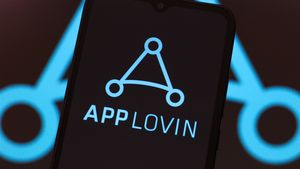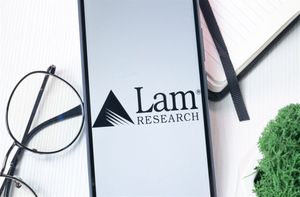- Rosnilimab was safe and well tolerated with similar adverse event rates vs. placebo
- Observed expected pharmacology, including ~90% depletion of pathogenic T cells, however lack of adequate efficacy at Week 12 does not support further development of rosnilimab in UC and trial will be discontinued, resulting in at least $10 million in savings
- Will provide update in H1 2026 on advancement of rosnilimab in RA, which would be funded by strategic or other sources of capital without diluting our royalties
- Reiterating commitment to protect and return the value of our substantial royalties to shareholders and intention to separate biopharma operations from royalty assets in 2026
- Biopharma Co will advance ANB033 through Phase 1b in celiac disease and an additional inflammatory indication, and ANB101 through Phase 1a in healthy volunteers
- Anticipate ending 2025 with ~$300 million, including anticipated accrual of one-time $75 million commercial sales milestone from GSK in Q4 2025 once Jemperli achieves $1 billion in global net sales
SAN DIEGO, Nov. 10, 2025 (GLOBE NEWSWIRE) -- AnaptysBio, Inc. (Nasdaq: ANAB), a clinical-stage biotechnology company focused on delivering innovative immunology therapeutics, today announced that investigational rosnilimab was safe and well tolerated but did not meet the primary endpoint of mean change from baseline in modified Mayo Score (mMS) or key secondary endpoints of clinical response and clinical remission at Week 12 in the global Phase 2 trial for moderate-to-severe ulcerative colitis (UC). Placebo rates in the trial were within expected historical ranges. Given these results, this UC trial will be discontinued, resulting in at least $10 million in savings.
“Rosnilimab was safe and well tolerated, but we are disappointed in the lack of adequate efficacy and will discontinue the UC trial. However, we remain excited about the potential advancement of rosnilimab in RA and will provide an update in H1 2026 including funding by strategic or other sources of capital without diluting our royalties,” said Daniel Faga, president and chief executive officer of Anaptys. “ANB033, our CD122 antagonist, is in a Phase 1b for celiac disease and we plan to announce a Phase 1b in another inflammatory disease in 2026. Simultaneously, we are reiterating our intention to separate our biopharma assets from our substantial royalty assets in 2026, including Jemperli royalties of >$390 million per year at GSK’s peak sales guidance of >$2.7 billion1, which Anaptys expects to be achieved before 2031.”
The Phase 2 randomized, double-blind, placebo-controlled, multicenter study evaluated the efficacy and safety of rosnilimab in UC patients. The study enrolled 136 moderate-to-severe patients across the U.S. Western and Eastern Europe with a baseline mean mMS score of 6.7 who had an inadequate response to, loss of response or intolerance to, at least one conventional or advanced UC therapy. Approximately 50% of enrolled patients had prior experience with advanced therapies and 62% had an endoscopic (MES) score of 3, indicating severe disease activity. Patients were randomized to receive either 400mg of subcutaneous (SC) rosnilimab every four weeks (Q4W), 800mg SC every two weeks (Q2W), or placebo.
Regardless of prior treatment, rosnilimab performed no better than placebo at Week 12, with clinical remission achieved by 7% of patients receiving rosnilimab 400mg Q4W or 800 mg Q2W, and 5% and 4% of patients achieving endoscopic remission, respectively. While preliminary data suggest an increase in remission rates between Week 12 and Week 24, Week 24 remission rates did not meet our six-month target product profile.
Consistent with the RA Phase 2b study, blood biomarker data in the UC study for both rosnilimab doses showed ~90% depletion of pathogenic T cells at Week 12 with preliminary data suggesting these effects were sustained through Week 24. Likewise, for patients continuing in the treatment extension period (TEP), all of whom were reassigned to a less frequent, 400mg Q8W dose regimen, these reductions were sustained through Week 50.
PD-1+ T cells were depleted in the colonic tissue at Week 12, consistent with the synovium in the RA Phase 2b study. Preliminary data show these reductions were observed equally with both induction doses, indicating the expected maximal pharmacological effect was obtained with the 400mg Q4W dose.
Rosnilimab Well Tolerated with No Safety Signals
Consistent with prior rosnilimab studies, a favorable safety and tolerability profile was observed, even at a 33% higher cumulative dose through 6 months in the 800mg Q2W cohort relative to the highest dose studied, 600mg Q2W, in the RA Phase 2b trial.
The data through Week 12 show –
- Most adverse events (AEs) were mild to moderate in severity
- No treatment-related serious adverse events (SAEs)
- No malignancies
- No MACE, other than one myocardial infarction in the 800mg Q2W dose cohort in a patient with hyperthyroidism, hypertension, glucose intolerance, and with evidence of preexisting cardiovascular disease by cardiac catheterization
- No serious, severe or opportunistic infections, other than a bilateral anterior uveitis by CMV in the 800mg Q2W dose cohort, diagnosed in a patient with pre-existing HIV
- No AEs of liver enzyme elevations
- Low incidence of injection site reactions and similar to placebo
- No incidence of anaphylaxis or systemic hypersensitivity
Through Week 12, adverse events occurring in >5% of participants were nasopharyngitis, ulcerative colitis, dizziness and injection site erythema, and were all mild to moderate in severity. Rosnilimab was highly tolerable, with one patient discontinuing rosnilimab due to an AE. Separately, in the placebo cohort, there was one reported death and one case of uterine leiomyoma.
The ongoing safety profile, including for patients through end-of-treatment at Week 50, remains consistent with the reported profile of all rosnilimab-treated patients through Week 12 as well as what was observed in the RA study. There have been no reported cases of malignancy or additional MACE.
“We are sincerely grateful to the patients and clinicians who participated in this trial. Despite rosnilimab not being the appropriate therapeutic option for UC, biologic insights from these data will help further inform future rosnilimab development,” said Paul Lizzul, M.D., Ph.D., chief medical officer of Anaptys.
About Anaptys
Anaptys is a clinical-stage biotechnology company focused on delivering innovative immunology therapeutics for autoimmune and inflammatory diseases. The company’s pipeline includes rosnilimab, a pathogenic T cell depleter, which has completed a Phase 2b trial for rheumatoid arthritis; ANB033, a CD122 antagonist, in a Phase 1b trial for celiac disease with plans to expand development into an additional indication; and ANB101, a BDCA2 modulator, in a Phase 1a trial. Anaptys has also discovered and out-licensed in financial collaborations multiple therapeutic antibodies, including a PD-1 antagonist (Jemperli (dostarlimab-gxly)) to GSK and an IL-36R antagonist (imsidolimab) to Vanda Pharmaceuticals. To learn more, visit www.AnaptysBio.com or follow us on LinkedIn.
Anaptys recently announced the intent to separate its biopharma operations from its substantial royalty assets by year-end 2026, enabling investors to align their investment philosophies and portfolio allocation with the strategic opportunities and financial objectives of each company. Learn more here.
Forward-Looking Statements
This press release contains forward-looking statements within the meaning of the "safe harbor" provisions of the Private Securities Litigation Reform Act of 1995, including, but not limited to: the ability to find funding for continued development of rosnilimab; expectations regarding the structure, infrastructure, timing and taxation of the proposed separation of companies; year-end cash estimates; and the potential to receive any additional milestones and royalties from the GSK collaboration, and the timing therefor. Statements including words such as “plan,” “continue,” “expect,” or “ongoing” and statements in the future tense are forward-looking statements. These forward-looking statements involve risks and uncertainties, as well as assumptions, which, if they do not fully materialize or prove incorrect, could cause its results to differ materially from those expressed or implied by such forward-looking statements. Forward-looking statements are subject to risks and uncertainties that may cause the company’s actual activities or results to differ significantly from those expressed in any forward-looking statement, including risks and uncertainties related to the company’s ability to advance its product candidates, obtain regulatory approval of and ultimately commercialize its product candidates, the timing and results of preclinical and clinical trials, the company’s ability to fund development activities and achieve development goals, the company’s ability to protect intellectual property and other risks and uncertainties described under the heading “Risk Factors” in documents the company files from time to time with the Securities and Exchange Commission. These forward-looking statements speak only as of the date of this press release, and the company undertakes no obligation to revise or update any forward-looking statements to reflect events or circumstances after the date hereof.
Contact:
Nick Montemarano
Executive Director, Investor Relations
858.732.0178
investors@anaptysbio.com
______________________________
| 1. | CEO Emma Walmsley, 2025 JP Morgan CEO Series fireside chat, 9/11/2025, “there's no change to our peak year sales overall ambition for Jemperli, that's for sure, which is far more than £2 billion.”; Converted from GBP to USD using Q3 2025 average exchange rate (1.35x) |






